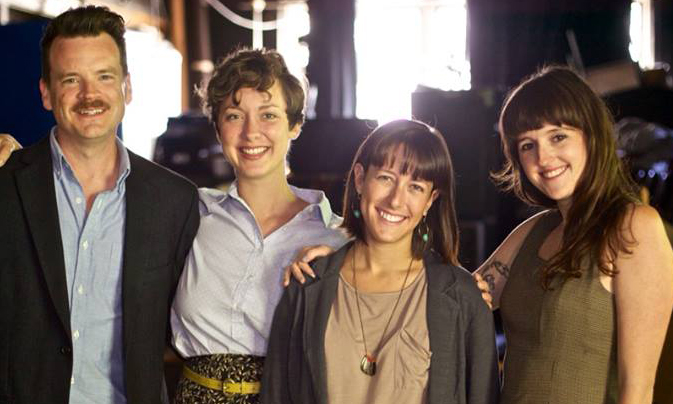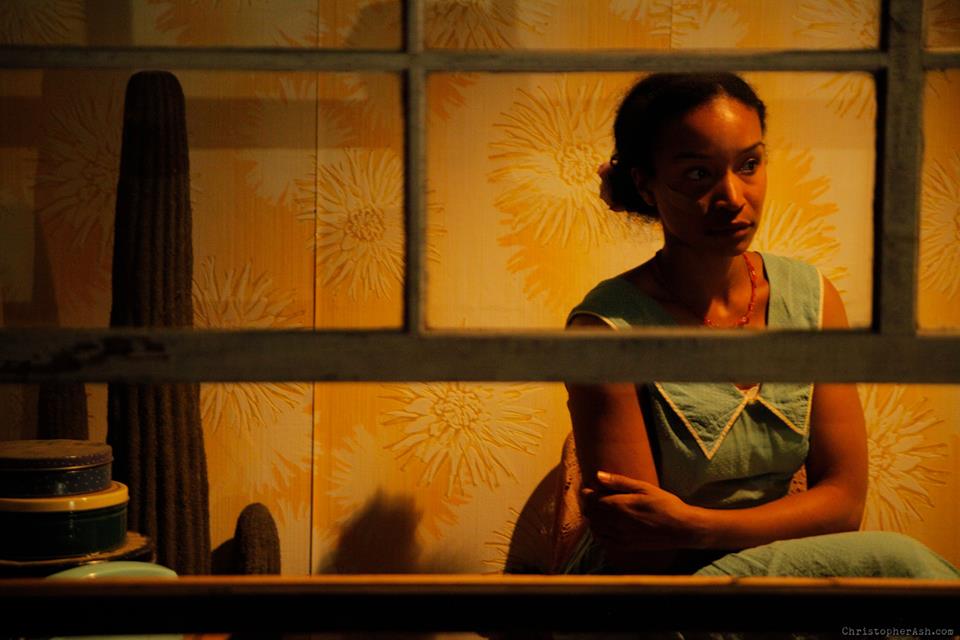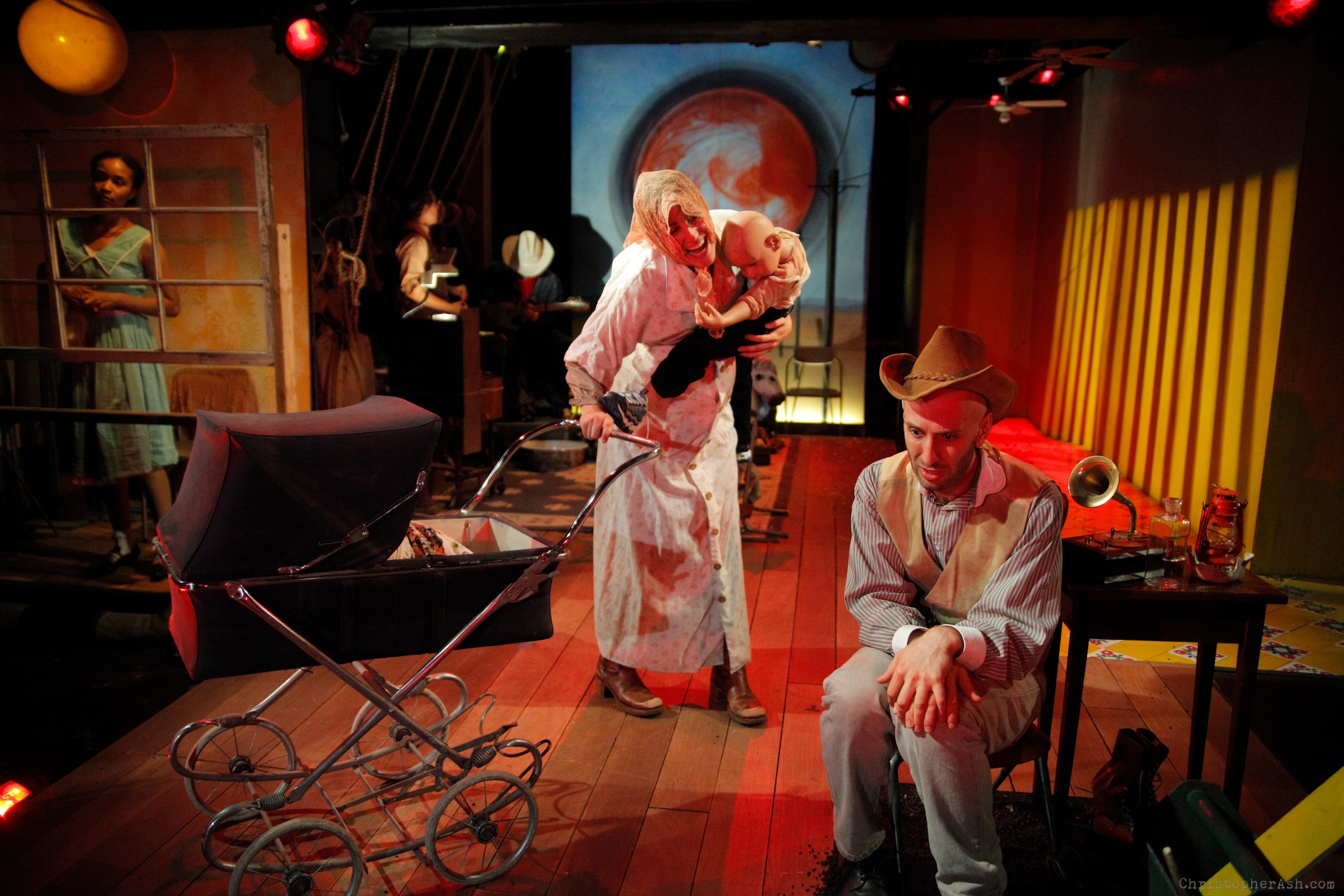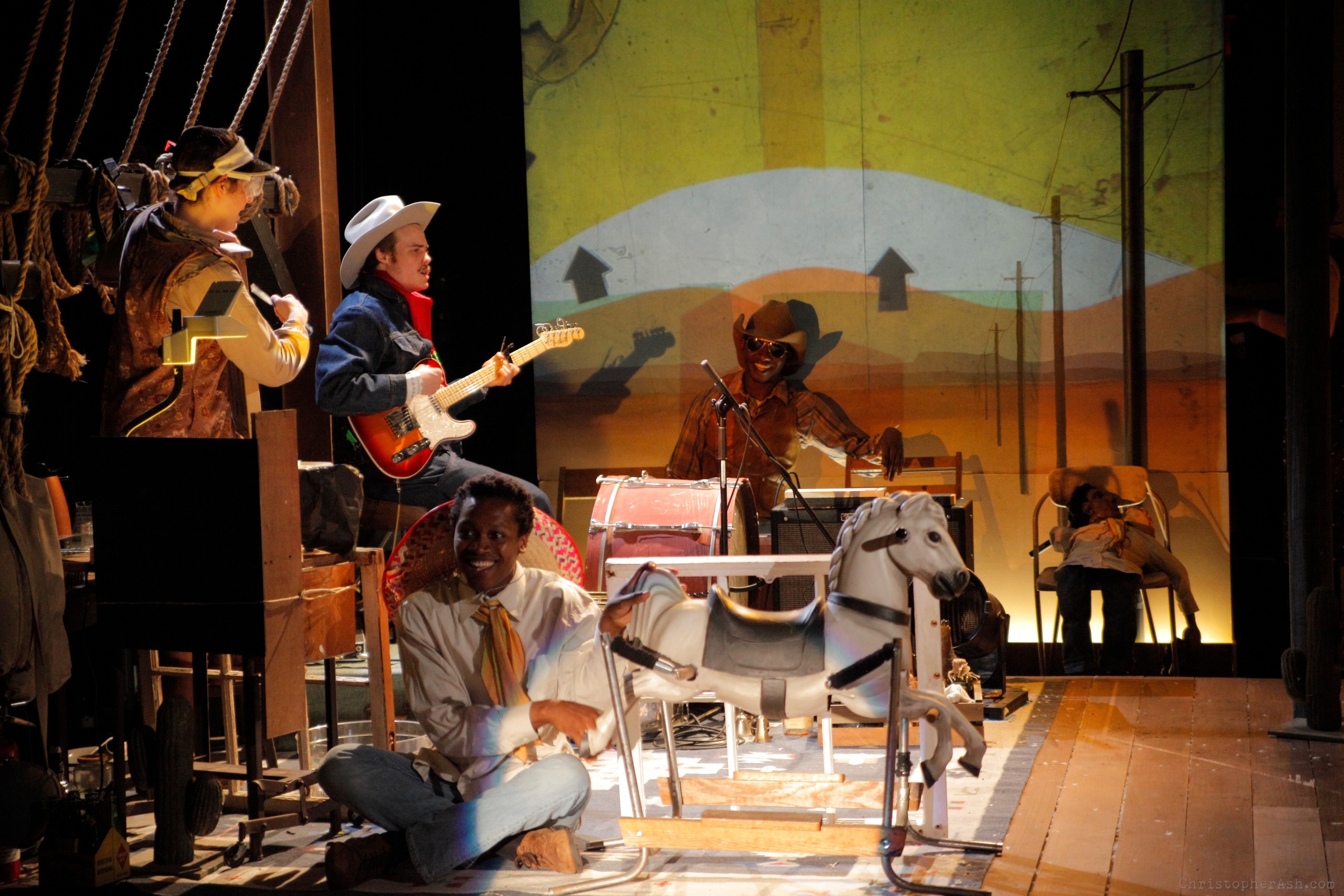Every year the Yale Cabaret enstates new artistic directors—Yale School of Drama students whose vision of and commitment to theater will guide the choices of shows for the coming season. For Cab 46, almost ready to kick-off this month, the people running the show are three dramaturgs—Whitney Dibo, Lauren Dubowski, Kelly Kerwin—as co-Artistic Directors, and Shane Hudson, as Managing Director. All have previous background with offerings at the Cab—particularly, for the ADs, The Twins Would Like to Say, the penultimate production of Cab 45. Dibo and Dubowski co-directed the play and Kerwin was the production’s dramaturg. Those who saw the play will remember its use of the entire space of the Cab (there was no “back stage”) and its encouragement that the audience move about during the show, which was staged, at times, in different locations simultaneously. Hudson has already become a familiar face at the front desk of the Cab, particularly during the Yale Summer Cab of 2012.

The tag words for this year’s Cab are “invention – urgency – artistry,” and the three ADs stress “risk” as an element of what they’re looking for in choosing the shows that will be staged this year. Being “allowed to fail” means having the luxury to try out approaches, plays, collaborations that might be something less than a “sure thing.” If everyone only does what they’ve already done and know they’re good at, all sense of exploration, innovation, and challenge goes out the window. As regulars of the Cab know, there’s always a mix of amazingly spot-on shows and shows that reach for something they might not grasp, this time ‘round. There’s also a beguiling sense of not knowing what you’ll get until you arrive and the show starts. The Cab’s mystique is largely predicated on the unexpected and the untried before.
The questions that Dibo, Dubowski and Kerwin—sounding a bit like a law firm or agency when you say it like that—ask of their colleagues, in the application process, apply to time and place. “Why here?” is a question about the use of the specific space and implies a sense of community as well. Why the Cab, both as a uniquely intimate and amorphous space, but also, why the Cab, in the sense of its audience and its larger context within the School of Drama. D,D,K are committed to tapping the unique ability of the Cab to serve their colleagues in YSD as the premiere locus for artistic investigation.
The complimentary question, of course, and one that every theatrical venue should ask when setting up its season is “why now?” The “here and now” of any play is what convinces audiences that they should be present to see this particular show and not some other.The Cab shows, in their short lives (only three nights for each play), arrive with a sense of urgency, a sense that the story to be told is worth all the sweat and toil for such an ephemeral run.
With shows that are completely generated by graduate students—usually in a mix of already existing plays and plays originating before our very eyes—the Cab can’t get us in the door with stars and celebrities. The venue’s allure has to do with the possibility of discovery: what future greats may even now be honing their talents for audiences at a ridiculously low price? (A non-student flex pass of 9 shows makes each show cost $10, which is the standard price for students.) A host of top notch theater people have worked at the Cab in its 46 illustrious years: Meryl Streep, Sigourney Weaver, Paul Giamatti, John Turturro, Christopher Durang, Anna Shapiro, to name but a few. We’ve no doubt that their fellows can be found working with devotion on the “passion projects” at the Cab (no show at the Cab counts toward graduation for any of its participants; these shows are all ends in themselves—unless they go on to future development, as some do).
This year, the ADs have instituted a deviation. Usually the ADs of the Cab reserve a few slots for their own projects. Our three ADs have chosen to waive that perk but have replaced it with a different kind of participation: each approved play will have one of the three ADs assigned to it as Creative Producer. That role will be a vantage from which to offer notes before a show goes up, and, more importantly, to facilitate the show in any way necessary. The role of CP lets D, D, or K have a creative role in how a project shapes up—not that ADs are traditionally hands-off entirely about the shows they accept. The CP role will mean that the ADs are a bit more invested in each show than might sometimes be the case.
As students of dramaturgy—the text-based, historical consciousness of the theatrical community, we might say—Dibo, Dubowski, and Kerwin have paid their dues: both Dibo and Kerwin have worked in Chicago with the famous Steppenwolf Theatre, as well as other innovative companies, and Dubowski has worked with Headlong Dance Theatre in Philadelphia, and at the Yale Rep as dramaturg on last year’s comic satire American Night: The Ballad of Juan José. Dibo and Dubowski also collaborated on Cab 44’s The Yiddish King Lear, and the trio have worked on thesis shows and Carlotta Festival shows at YSD. In other words, D,D,K have run the gamut of the kinds of shows YSD produces as well as having experience with the kind of theater that takes place off-the-beaten-track.
And now the first three shows . . .
Cab 1: September 19-21: We Know Edie La Minx Had a Gun by Helen Jaksch, Kelly Kerwin, and Emily Zemba; directed by Kelly Kerwin. Using live music—including a tango—to tell the tale, based on a real story, of a fictional legendary drag queen, Edie La Minx explores “the grit behind the glam.” Edie, it seems, not only has a gun, she also has an unexplained mummified body in a garment bag in her apartment, complete with a gunshot wound to the head. Who is it, and what’s it mean for Edie? Seth Bodie assays the role of Edie (those who braved the biggest blizzard in recent memory last winter to see the First Annual Yale Cab Drag Show may remember Seth’s performance, which may or may not be relevant to the role of Edie). The show purports to have the lively and unpredictable elements so crucial to season kick-offs, and that’s reason enough to see how it plays.
Cab 2: September 26-28: The Dutchman by LeRoi Jones/Amiri Baraka; directed by Katherine McGerr. Jones’ play was incendiary in its time, making free use of “the n word” and exploring the vexed issue of inter-racial attraction and antagonism on a New York subway in 1964—the year after Dr. King’s “I have a dream” speech at the Lincoln Memorial. In these “post-racial” days of the Baraka administration, an event like the murder of Trayvon Martin and the trial of George Zimmerman (to say nothing of more distant events such as the O.J. trial in the ‘90s) shows us that, in the U.S., race is never “in the past.” McGerr has done notable work at the Cab in staging already existing plays that featured the grisly (Howard Benton's Christie in Love), the timely (Arthur Kopit's Chamber Music), and the unpredictable (Nassim Soleimanpour's White Rabbit/Red Rabbit).
Cab 3: October 3-5: The Most Beautiful Thing in the World; conceived and directed by Gabe Levey. If you’ve been around YSD in the last few years, you probably know Gabe Levey—his Andy Kaufmannesque one-man show, Brainsongs, in Cab 44, or his comic role as the Shoemaker/Puppet-master in the Summer Cab’s enactment of Lorca’s The Shoemaker’s Prodigious Wife, or perhaps his memorable turn as a young girl in a pinafore in Margot Bordelon’s thesis production of Caryl Churchill’s Cloud Nine last spring. This time he’ll be directing Third-Year playwright Kate Tarker in play that promises one of “the world’s most renowned motivational speakers” and a pitch to put the "you" in “universe.” Levey and Tarker share a penchant for the techniques Christopher Bayes teaches in his clown classes at Yale (Bayes is the comic vision behind such recent Rep hits as The Servant of Two Masters and A Doctor in Spite of Himself), so this show will be nothing if not funny.
Another innovation of Cab 46 will be the use of actual images from the productions in the support materials, such as the playbills at the shows, and a logo that provides grounds for seeing this as “a Cab of many colors.”
The remaining seven shows of the first semester will be previewed here some time in October, and, until then, see you at the Cab!
(photographs by Christopher Ash; courtesy of the Yale Cabaret)





